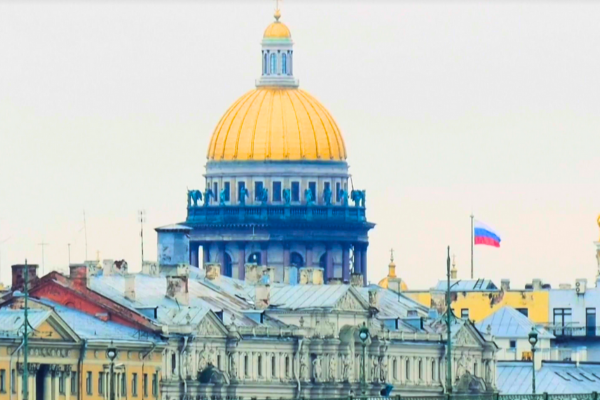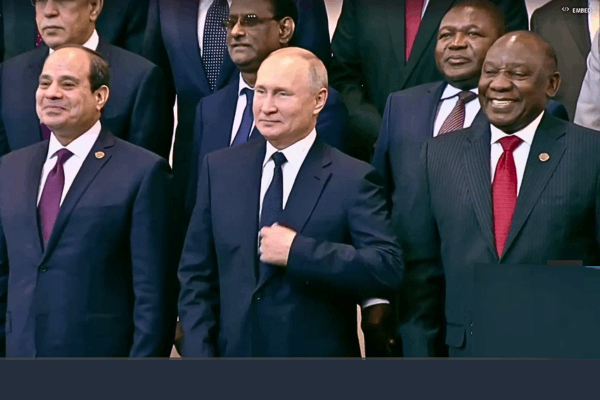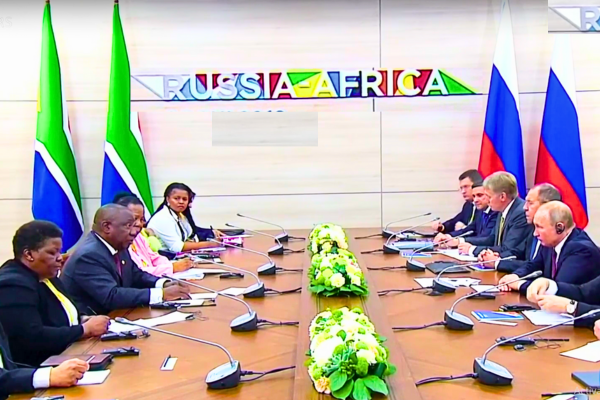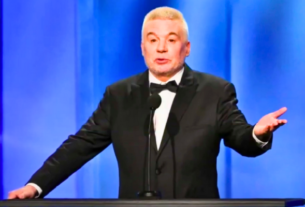Assessing the Second Russia-Africa Summit
After Russia’s invasion of Ukraine in 2022, the Kremlin has been on a mission to strengthen its political and economic ties with African governments and businesses. They are positioning themselves as an alternative partner to the West, and this change is evident through the deployment of Wagner Group‘s mercenary operations. These operations aim to secure access to valuable resources in exchange for supporting governments facing internal armed opposition. As part of its influence strategy, Russia is actively pursuing African states through high-level summits and meetings, with the upcoming Second Russia-Africa Summit taking center stage. Despite facing some challenges, Moscow is determined to regain international influence through closer relations with Africa and expanding its presence in the global economic landscape.
Escalation of Diplomatic Efforts
Russia’s approach to Africa involves a multifaceted strategy, with a significant focus on diplomatic engagements. Russian Foreign Minister Sergey Lavrov has been actively visiting African capitals, demonstrating Russia’s commitment to build diplomatic and business relationships on the continent. The Kremlin believes that gaining the support of “non-aligned states” in Africa will be vital in safeguarding its international influence after the Ukrainian invasion. Through dialogue and personal connections with African leaders, Russia aims to establish a favorable position on the continent.
One remarkable example of this diplomatic effort was Lavrov’s recent visits to South Africa. During these visits, Lavrov discussed the upcoming Second Russia-Africa Summit and other matters of mutual interest. The significance of these engagements is highlighted by the fact that South Africa currently holds the rotating chairmanship of the BRICS bloc, which comprises Brazil, Russia, India, China, and South Africa.

Russia’s Presence in Key Summits
The upcoming Second Russia-Africa Summit, set to take place in St. Petersburg’s Expo Forum, is expected to attract high-level African leaders. The primary objective of the summit is to strengthen economic, cultural, and humanitarian cooperation between Russia and Africa. This event serves as a platform for Russia to demonstrate its commitment to Africa and explore new opportunities for collaboration in various sectors.
However, the attendance of President Vladimir Putin faced concerns due to an International Criminal Court arrest warrant over alleged war crimes committed by Russian forces during the Ukrainian invasion. Eventually, Putin agreed to attend the summit virtually, while Russian Foreign Minister Lavrov attended in person. This decision reflects the summit’s significance to Russia and its desire to solidify ties with African states.
Rivalry with China in Africa
As Russia’s influence grows in Africa, it encounters competition with China, particularly concerning access to Africa’s rich reserves of resources essential for industrial and digital technologies. Both countries envision expanding the BRICS bloc as an alternative politico-economic nexus to challenge the dominance of the U.S. dollar in global trade.
China has already established a significant presence in Africa through its Belt and Road Initiative (BRI), becoming a major trading partner and investor in various African countries. Russia, on the other hand, positions itself as a viable alternative to China, offering African states an additional option for economic cooperation and investment.
The rivalry between Russia and China in Africa extends beyond economic aspects, with geopolitical considerations also coming into play. While China concentrates on infrastructure development and trade, Russia’s approach includes security cooperation, arms sales, and support for autocratic regimes. This divergence in approaches could potentially lead to areas of cooperation and conflict between the two countries in Africa.
Challenges in Achieving Global Leadership Status
Both Russia and China aspire to become global economic and political powerhouses, but they face significant challenges on this path. Their interests in Africa often diverge, leading to tensions in client states that rely on military, technological support, and economic investments. Additionally, neither Russia nor China can currently challenge the global influence of the U.S. dollar, given their respective economic weaknesses.
Russia’s economy has endured considerable challenges, especially due to international sanctions and the costly Russo-Ukrainian war. The conflict in Ukraine severely damaged the Russian economy, resulting in a sharp decline in the value of the ruble and shortages of consumer goods and critical technology industries. While Russia attempted to force European countries to buy energy resources in rubles, it was largely unsuccessful, leading to a decrease in its energy export revenues.
China, too, faces its own economic hurdles, including the aftermath of the COVID-19 pandemic and mounting internal debt. The Chinese economy has experienced slower growth, particularly in global exports, and local authorities are grappling with vast debt incurred during the building boom. China’s ability to challenge the U.S. dollar’s dominance is further hindered by its limited holdings of U.S. government treasury bonds.
Russia’s Investment and Trade with Africa
Despite initial promises to double trade with Africa, Russia’s economic ties with the continent have not witnessed significant growth. Trade remains concentrated in only a few countries, with Russia exporting more than it imports. Moreover, a staggering 70% of this trade is concentrated in just four countries: Egypt, Algeria, Morocco, and South Africa.

Russian investment in Africa remains minimal, accounting for just 1% of foreign direct investment in the continent. This lack of investment indicates that while Russia seeks closer ties with Africa, it has not made substantial financial commitments compared to other global players, such as China and Western countries.
However, the upcoming Second Russia-Africa Summit provides an opportunity for Russia to showcase potential investment opportunities and economic cooperation with African countries. By focusing on sectors such as mining, energy, grain, transport, and digitization, Russia aims to attract African partners and foster mutually beneficial relationships.
Expanding Influence through Irregular Means
In its pursuit of influence, Russia has employed irregular means in Africa, including the deployment of Wagner paramilitary forces, electoral interference, disinformation campaigns, and arms-for-resources deals. This approach often undermines stability in African countries, leading to human rights abuses and exacerbating existing conflicts.
The Wagner Group, a Russian paramilitary organization, has been involved in various African countries, providing support to autocratic regimes and engaging in mining activities. Wagner’s actions have been associated with increased security challenges and human rights violations in the regions where it operates.
Moreover, Russia has faced accusations of interfering in the political affairs of African countries, using disinformation campaigns to shape the information environment. Reports suggest that Russia has engaged in such activities in at least 16 African countries, impacting public opinion and manipulating political narratives.
Russia has also pursued arms-for-resources deals in Africa, offering military assistance and equipment in exchange for access to valuable resources. While these deals may provide short-term benefits to the recipient countries, they can also fuel conflict and undermine regional stability.
Questionable Benefits for Africa
While African leaders attend the Russia-Africa Summit, Moscow’s influence strategy poses challenges for the continent. The tactics used by Russia undermine stability, damage the rule of law, and can negatively impact investments and international partnerships in Africa. Citizens’ interests may differ from those of their leaders, prompting a need for leadership from African civil society and media in championing reforms.
The Kremlin’s approach often involves supporting incumbent autocratic regimes, offering protection from international sanctions and other repercussions for human rights abuses. This support enables such regimes to maintain power, leading to a lack of democracy and transparency in these countries.
Moreover, the irregular means employed by Russia, such as opaque mining and arms deals, can result in annexation of territories and intimidation of local communities. In regions where Wagner has been granted mining access, the company’s actions have displaced communities and disrupted the lives of local populations.
The consequences of Russia’s influence strategy extend beyond individual countries and can impact regional stability. Some African countries where Russia is actively involved have experienced significant conflicts, leading to challenges for the African Union and the United Nations in maintaining peace and security.
The summit provides an opportunity for African leaders to assess the benefits and risks of engaging with Russia. While the potential for economic cooperation and investment may be attractive, leaders must consider the long-term implications of aligning with a country known for employing irregular tactics in pursuit of its interests.
Net Take Away from The Scheduled Russia-Africa Upcoming Summit
Africa’s relationship with Russia is shaped by a combination of economic, geopolitical, and security considerations. The continent provides Russia with an opportunity to project its global influence, while African leaders seek new partnerships to advance their countries’ development and economic interests.
Africa needs to be careful about getting too involved with Russia. The tricky ways Russia goes after what it wants can cause problems for how stable Africa is and for people’s rights. Leaders in Africa have to think about whether it’s worth it to work together economically with a country like Russia, considering the possible bad things that might come from being buddies with a place known for acting aggressively.
The Russia-Africa Summit is a place where people can talk and get involved, but African leaders need to think really hard about what’s best for their countries and the people who live there. With Russia and China trying to be important in Africa, African countries can use this moment to make friends that match their big plans for the future, like having a good democracy and running things well.
Overall, this summit is a chance for both Russia and Africa to team up and make their connections stronger. But for it to really help everyone, African leaders need to be careful and think about what their citizens need most. That way, Africa can deal with all the big powers in the world and work toward making things better for everyone in a way that lasts.




